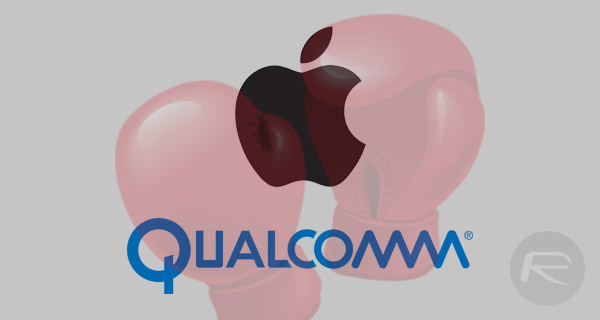Apple’s ongoing legal troubles with Qualcomm have been well documented, and we have covered the saga a few times ourselves.
Now it seems things have taken a somewhat surprising turn, with Apple now claiming that Qualcomm infringed upon one of its patents – a reversal of Qualcomm’s claims that Apple did the same.

Apple claims that Qualcomm violated at least eight Apple patents across its Snapdragon 800 and 820 processors which are used in a number of Samsung and Google Pixel Android smartphones. According to Reuters, the claim relates to how the chips handle power management.
The Apple patents involve ensuring each part of a phone’s processor draws only the minimum power needed, turning off parts of the processor when they are not needed and making sleep and wake functions work better.
Perhaps the most interesting part of the whole story though is the possibility that this action could have been avoided if Qualcomm had not tried to sue Apple for patent infringements. According to Reuters, Apple initially began its own action before Qualcomm did its own.
Apple began seeking those patents years before Qualcomm began seeking the patents it asserts against Apple in this case.

While Apple is seeking unspecified damages against Qualcomm, it does not appear to be going after either Samsung or Google – two of the companies which make use of the Qualcomm chips that Apple believes are infringing upon its power management patents. Whether this will change or not is unclear, but if Apple is indeed going after the chip maker as a retaliatory measure, it is likely that any company using the chips will be safe, at least for now.
As for Apple and Qualcomm, expect there to be many more twists and turns before this one gets put to bed for good.
(Source: Reuters)
You may also like to check out:
- iOS 11.2 Beta 6 Download Or Final Version Release Date: What To Expect From Apple After Beta 5
- Download Torrents On iPhone Running iOS 11 [No Jailbreak / Computer / Sideloading Required]
- Download iOS 11.2 Beta 5 IPSW Links, OTA For Testing On Compatible iPhone Or iPad
- CyrusVIP Installer Download On iOS 11 Promises No Revokes For Apps And Tweaks On Non-Jailbroken Devices
- Download iOS 11.1.2 IPSW Links And OTA Update For iPhone, iPad, iPod touch
- Downgrade iOS 11 / 11.1.2 On iPhone Or iPad [How-To Guide]
- Jailbreak iOS 11 / 11.1.2 / 11.1.1 On iPhone And iPad [Status Update]
You can follow us on Twitter, add us to your circle on Google+ or like our Facebook page to keep yourself updated on all the latest from Microsoft, Google, Apple and the Web.

